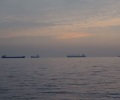High Metal Prices Cushion New Russian Export Duty’s Impact

High steel and base metal prices will cushion the impact of Russia’s new temporary export duty on affected companies’ financial profiles, Fitch Ratings says. However, if the measures are extended, the impact could be greater once prices moderate. Fitch expects the new duty to have a limited impact on global metal prices, although steel and aluminium markets could be affected in the short term.
Last week, the Russian government introduced an export duty on most steel products and aluminium, copper and nickel. The duty will be either 15% of export prices or a metal-specific minimum rate, whichever is greater. It will apply from August until December 2021 to all exports, other than those to the Eurasian Economic Union (EAEU).
All Fitch-rated companies can absorb these temporary cash outlays without pressure on their ratings due to robust cash flow generation this year and mostly flexible financial policies. We estimate the maximum impact on EBITDA to be less than 15% in 2021.
 While RUSAL will be the most affected due to its focus on exports of a single commodity, the impact on its credit metrics in 2021 will be limited, with the company maintaining material leverage headroom. Its EBITDA could decline by around USD360 million, in addition to a USD80 million reduction from Norilsk Nickel’s dividend. The company’s strong financial position is supported by high aluminium prices and USD1.4 billion of inflows from Norilsk Nickel’s share buyback. The duty will also have a limited impact on Norilsk Nickel due to the high share of precious metals in the company’s sales (60% of revenue in 2020) that are not subject to the new duty.
While RUSAL will be the most affected due to its focus on exports of a single commodity, the impact on its credit metrics in 2021 will be limited, with the company maintaining material leverage headroom. Its EBITDA could decline by around USD360 million, in addition to a USD80 million reduction from Norilsk Nickel’s dividend. The company’s strong financial position is supported by high aluminium prices and USD1.4 billion of inflows from Norilsk Nickel’s share buyback. The duty will also have a limited impact on Norilsk Nickel due to the high share of precious metals in the company’s sales (60% of revenue in 2020) that are not subject to the new duty.
Russian steel companies have material rating headroom in 2021 due to higher-than-expected steel and metal prices. Furthermore, cash outflows related to the export duty are likely to trigger a reduction in dividends as the companies’ financial policies are linked to free cash flow levels.
Both NLMK and EVRAZ export about 50% of their domestically produced steel and their EBITDA levels will suffer a comparable impact. The impact on Severstal will be smaller due to its smaller exports and high proportion of high-value-added products. Metalloinvest is export-focused but benefits from strong prices on exported iron ore products, which are not subject to the duty. MMK sells mostly domestically, while the EAEU constitutes a notable share of its total exports.
Some products, like pipes, are not subject to the duty. This means the impact on pipe producers is likely to be neutral to positive since the availability of domestically sourced metal will likely increase.
If the export duty is extended beyond 2021, the impact on the issuers’ financial profiles could increase, based on our medium-term price assumptions, but is likely to remain within our ratings sensitivities. We also expect the export duty’s design to be adjusted to reflect volatility in commodity prices. Issuers will also factor the new duty into their investment plans and adjust dividend payouts.
Reduced steel exports from Russia may trigger a further price rise given strong global demand and constrained supply. Domestic steel prices will be driven by increasing export benchmarks, higher domestic supplies and lower netback levels. However, the domestic market could not absorb all additional volumes, especially of semi-finished products, and the country remains a net steel exporter.
Aluminium prices could be affected by the duty due to already tight supply and RUSAL’s substantial market share. We do not anticipate any material impact on other base metal prices due to the size of their respective markets and the contribution of Russian producers to global output, as well as specific dynamics in each metal market.
Source: Fitch Ratings

 Hellenic Shipping News Worldwide Hellenic Shipping News Worldwide, Online Daily Newspaper on Hellenic and International Shipping
Hellenic Shipping News Worldwide Hellenic Shipping News Worldwide, Online Daily Newspaper on Hellenic and International Shipping























 PG-Software
PG-Software